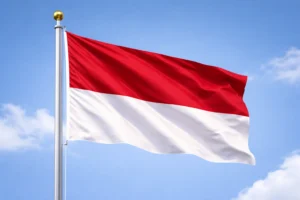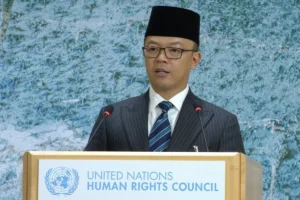Indonesia and UN Tourism to Launch Green Investment Guidelines for Sustainable Tourism

Jakarta, The Gulf Observer: Indonesia’s Ministry of Tourism, in partnership with UN Tourism, will unveil new investment guidelines focused on green economy principles and environmental sustainability in the tourism sector. The announcement came during the 37th Joint Commission Meeting of the UN Tourism Commissions for East Asia and the Pacific and South Asia, held in Jakarta on Tuesday.
The upcoming Indonesian Tourism Guidelines, set to be launched in collaboration with UN Tourism, aim to foster sustainable tourism development while ensuring economic benefits for local communities and the preservation of natural and cultural heritage.
“Let’s work together to make this event a success and play an active role in strengthening the tourism sector,” said Minister of Tourism Widiyanti Putri Wardhana, emphasizing the power of tourism as an economic driver amid global uncertainty.
The guidelines are expected to serve as a model for other UN Tourism member countries, providing strategic direction for green tourism investments and reinforcing Indonesia’s role as a leader in sustainable tourism practices.
UN Tourism Secretary-General Zurab Pololikashvili praised Indonesia’s initiative, noting the critical role of planning, partnerships, and education in building a resilient tourism sector. He emphasized the importance of regional collaboration and cited the development of tourism schools in Cebu, Philippines, as an example that could inspire similar projects in Indonesia and beyond.
“Indonesia and the Philippines share many islands and priorities—nature, people, culture, gastronomy, religion, adventure, and unique tourism products,” Pololikashvili said. “These are the areas we want to develop together.”
Meanwhile, CAP UN Tourism Chairperson Esperanza Christina Garcia Frasco from the Philippines expressed her country’s commitment to quality and sustainable tourism, highlighting the Philippines’ openness to international cooperation in unlocking regional tourism potential.
“We look forward to many opportunities for collaboration in tourism investment, education, and the broader tourism economy,” Frasco said, thanking both Indonesia and UN Tourism for leading the charge.
As nations across Asia and the Pacific work to revitalize post-pandemic tourism, the launch of these guidelines is expected to play a pivotal role in guiding eco-conscious investments, strengthening regional partnerships, and promoting inclusive, resilient tourism growth for the future.


